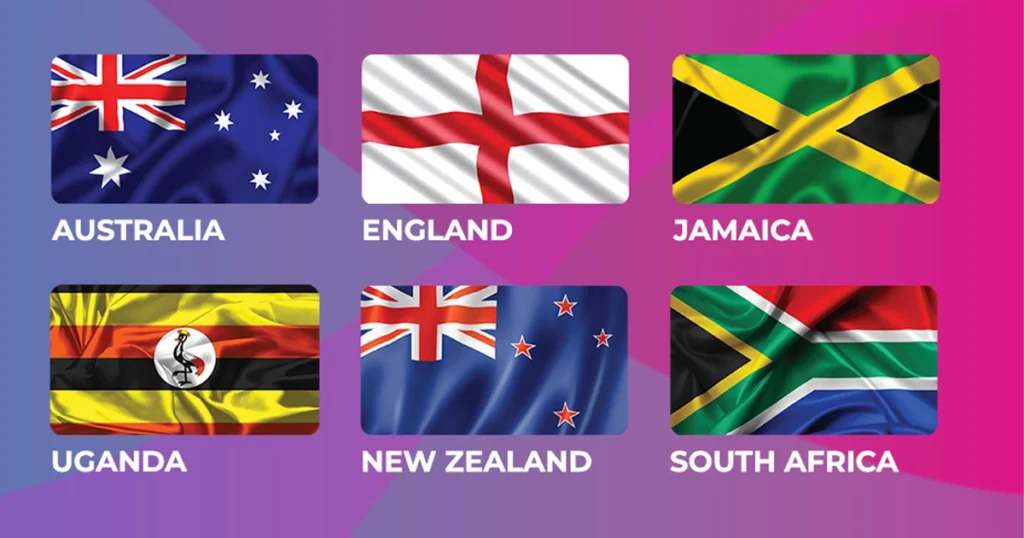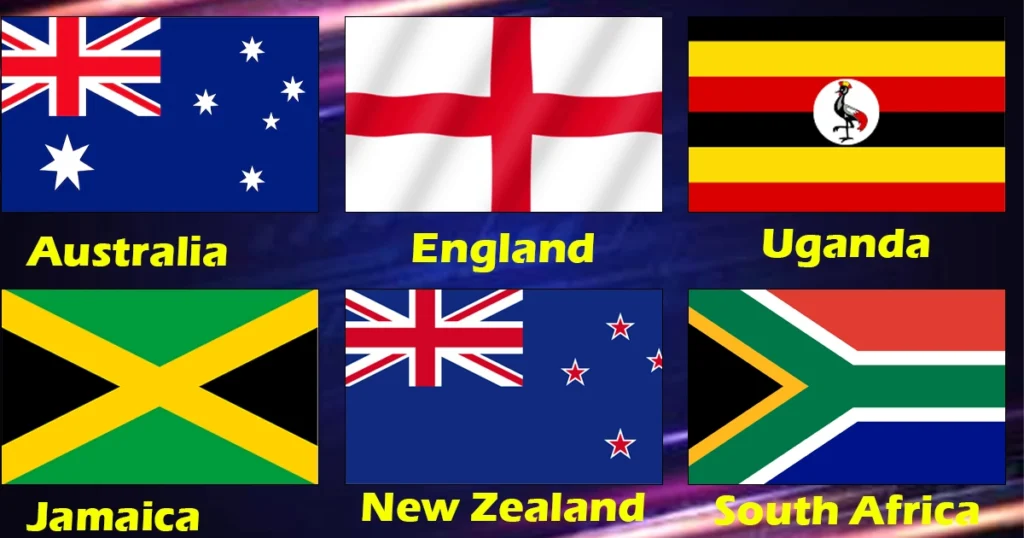The Netball World Cup is one of the most celebrated events in international netball, showcasing the top teams from across the globe. Teams representing various countries compete fiercely for the coveted title, bringing together the best players and strategies. Over the years, the tournament has evolved to reflect growing global interest in the sport.
Understanding the dynamics of Netball World Cup teams requires exploring their history, achievements, and growth. With each tournament, teams aim to solidify their place in the rankings, while emerging teams strive to make their mark. These teams represent the culmination of rigorous training, exceptional teamwork, and national pride.
In this article, we’ll delve into the composition, achievements, and challenges of Netball World Cup teams. From perennial champions like Australia to emerging powerhouses, we’ll cover everything to satisfy your curiosity about the tournament’s top contenders and underdogs.
Overview of Netball World Cup Teams
Netball World Cup teams represent the pinnacle of excellence in the sport, drawing players from countries with rich netball traditions. Typically, 16 teams qualify for the tournament, showcasing regional diversity and competitiveness. These teams hail from continents including Africa, Oceania, Europe, and the Americas.
Each team consists of elite athletes selected through national trials and domestic leagues. They bring a mix of experience and young talent, ensuring a blend of skill and enthusiasm. Representing their countries on the world stage is both an honor and a challenge for these teams.
- Diversity in Representation: Teams from various continents reflect the sport’s global appeal.
- Elite Players: Rosters feature the best players selected from national leagues and trials.
The diversity and competitiveness of Netball World Cup teams make the tournament a true celebration of global netball talent.
Qualification Process for the Netball World Cup
Qualifying for the Netball World Cup is a rigorous process, with teams needing to prove their mettle in regional and international competitions. The top-performing nations from each region secure spots, ensuring global representation. Africa, Oceania, Europe, and Asia hold qualifying tournaments to determine their participants.
The host nation usually receives an automatic entry, while others vie for limited slots. This competitive environment pushes teams to elevate their performance, fostering a higher standard of play. Netball World Cup Results Regional qualifiers also provide a platform for emerging teams to gain experience on the international stage.
- Regional Competitions: Teams qualify through events like the African Netball Championship or Asian Netball Championship.
- Automatic Qualification: The host nation secures a direct entry into the tournament.
The qualification process ensures only the best teams make it to the Netball World Cup, maintaining high competition standards.
Top Teams in Netball World Cup History
The history of the Netball World Cup is dominated by powerhouses like Australia, New Zealand, England, and Jamaica. These teams have consistently performed at the highest level, winning championships and setting benchmarks for excellence.
Australia leads the pack with the most titles, showcasing their dominance over the decades. New Zealand has also had a significant impact, with their Silver Ferns delivering memorable performances. England’s rise in recent years has added excitement, while Jamaica’s Sunshine Girls bring flair and unpredictability to the tournament.
- Australia: Most titles in the tournament’s history.
- New Zealand: Fierce rivals of Australia with a rich legacy.
- England and Jamaica: Emerging as strong contenders in recent years.
These teams continue to inspire fans with their skill, determination, and sportsmanship.
Emerging and Underdog Teams in the Netball World Cup
While the established teams dominate the headlines, emerging teams like Malawi, Uganda, and Trinidad and Tobago are making waves. These WCNT often surprise the favorites with their energy, creativity, and resilience on the court.
Emerging nations bring fresh perspectives to the game, backed by increasing investment in grassroots programs. Although they lack the resources of traditional powerhouses, their passion and commitment make them formidable opponents.
- Breakout Performances: Teams like Uganda have shocked top-ranked teams in recent tournaments.
- Rising Investments: Focused development programs are helping emerging nations close the gap.
The rise of underdog teams adds unpredictability and excitement to the Netball World Cup.
Challenges Faced by Netball World Cup Teams
Netball World Cup teams face various challenges, from limited funding to intense travel schedules. Emerging nations, in particular, struggle with securing adequate resources for training and competing at the highest level.
Competitive balance is another challenge, as traditional powerhouses often dominate due to superior infrastructure. Additionally, global travel and tight schedules can affect player performance and recovery.
- Funding Disparities: Emerging teams often operate with limited budgets.
- Global Logistics: Long travel schedules and time zone adjustments pose challenges.
Addressing these challenges is crucial for fostering greater inclusivity and competitiveness in netball.
Netball World Cup 2023 Teams and Results
The 2023 Netball World Cup brought together 16 of the best teams from around the world, with Australia ultimately claiming the title. New Zealand and Jamaica also impressed, securing podium finishes. The tournament highlighted the growing competitiveness among the top teams.
Surprises included breakout performances from teams like Uganda, who exceeded expectations and climbed the rankings. The tournament also showcased the impact of rising stars, signaling a bright future for the sport.
- Top Performers: Australia dominated, followed by New Zealand and Jamaica.
- Surprises: Uganda and other emerging teams delivered standout performances.
The 2023 World Cup reinforced netball’s global appeal and the growing depth of competition.
Future of Netball World Cup Teams
The future of Netball World Cup teams looks promising, with growing investment in development programs and broader representation. Nations like Zimbabwe, Samoa, and Fiji are becoming increasingly competitive, thanks to grassroots initiatives.
Expanding the tournament format to include more teams is a potential step forward. This would enhance diversity and provide valuable exposure for emerging nations, further enriching the sport’s global appeal.
- Grassroots Development: Initiatives to strengthen the sport in emerging regions.
- Potential Expansion: Discussions around increasing the number of participating teams.
With increased global investment, the future of Netball World Cup teams is brighter than ever.
FAQs
- Who is the most successful team in Netball World Cup history?
- Australia holds the record with the most titles.
- How many teams participate in the Netball World Cup?
- Typically, 16 teams compete in the tournament.
- Which are the top-performing regions in the Netball World Cup?
- Oceania and the Caribbean have consistently produced strong teams.
- What challenges do emerging teams face?
- Limited resources, funding disparities, and lack of international exposure.
- How do teams qualify for the tournament?
- Through regional competitions and rankings.
- What’s next for Netball World Cup teams?
- Greater investment in grassroots programs and potential expansion of the tournament.

